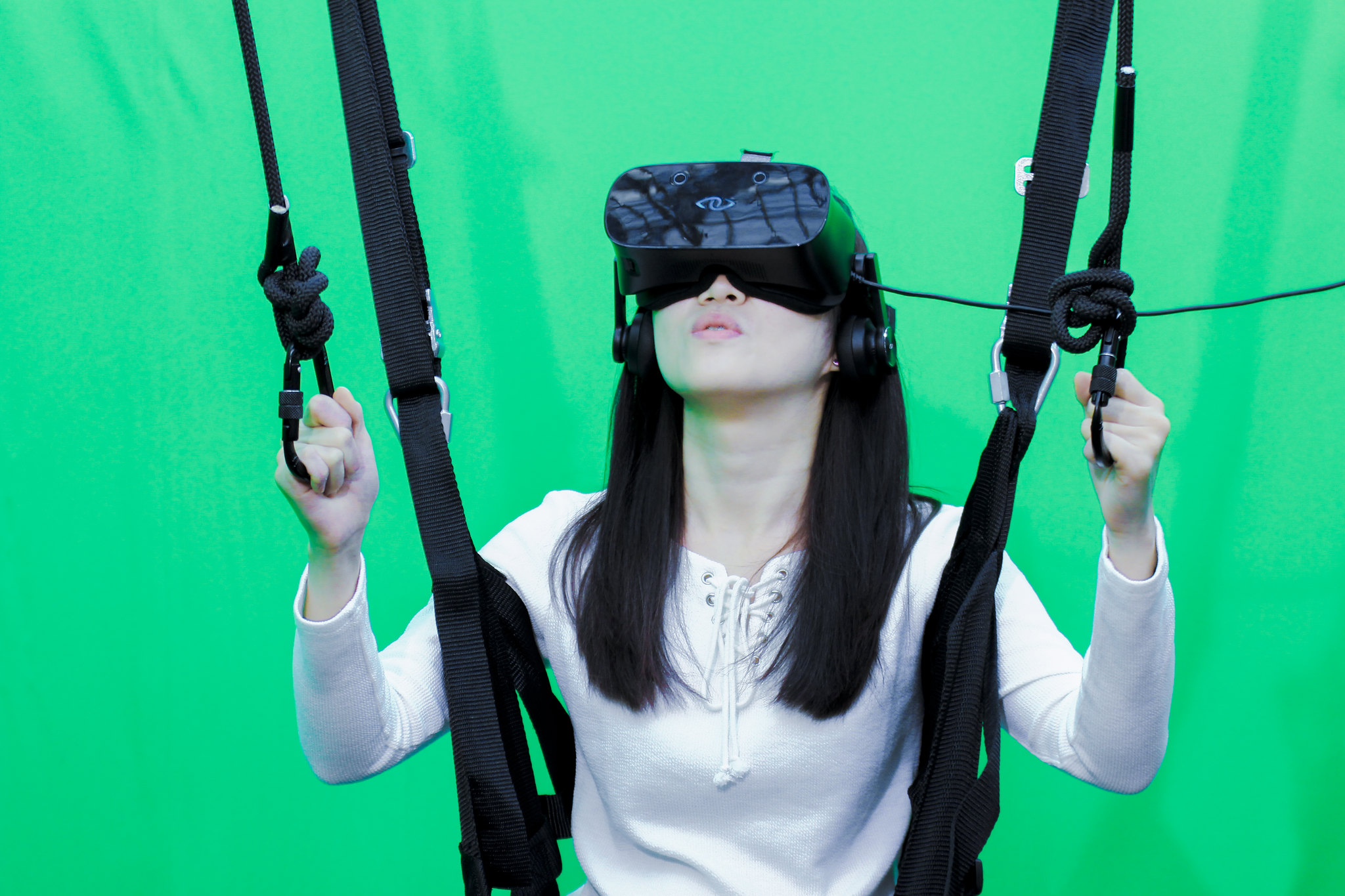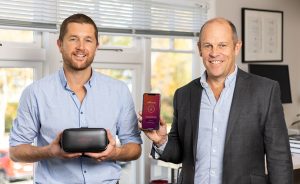Indian doctors say the study opens the door for mobile app-based VR therapy to treat fear of flying, needles, spider and heights.

App-based VR therapy could help overcome phobias. (Creative Commons)
“This can be a very useful treatment for phobia, irrational fear, and anxiety if proved to be successful in a larger population trial. Phobias can be challenging to treat. Using technology to treat mental health conditions is working very well,” says Dr Manoj Sharma, clinical psychologist and coordinator of the SHUT (Service for Healthy Use of Technology) clinic at NIMHANS, Bengaluru.
Dr Sharma was referring to a recent app-based virtual reality (VR) and cognitive behavior therapy (CBT) treatment for phobias by researchers in New Zealand.

VR therapy can treat fear of spiders. (Creative Commons)
While the use of VR exposure as therapy for specific phobias in research and limited clinical settings for a single phobia has existed for some time, the researchers from University of Otago, Chritschurch, evaluated the effectiveness of a mobile-based app ‘oVRcome’.
Here, the treatment is a combination of self-guided VR exposure and CBT for five specific phobias.
Phobia is a form of anxiety disorder. According to the American Psychological Association, “It is a continuous, persisting, irrational fear of a specific thing, situation or activity.”
While there are more than 100 phobias listed by mental health professionals, the researchers chose to treat relatively common fears such as fear of flying, fear of heights, fear of spiders, fear of needles, and fear of dogs.

University of Otago researchers showing the app-based VR system that can treat specific phobias. (University Website)
For the study, published in the Australian and New Zealand Journal of Psychiatry, 126 participants were provided with access to oVRcome — which was developed by the researchers — on a smartphone. This was paired with a VR headset to experience 360-degree virtual environments.
The researchers said the app has six different modules: Psychoeducation, Mindfulness, Cognitive techniques, Exposure through VR, and Relapse prevention.
The participants had the option of choosing the degree of exposure to their phobia using different VR videos for six continuous weeks. The app, which is available commercially, can be used for 10 specific phobias, as well as to treat social anxiety.
As this is over a smartphone application, the participants could opt to stop the video as and when they felt discomfort, said the study.
It was noted that the participants severity score decreased from 28 to 7 out of 40 by the end of the trial. Post-trials, some participants who had a fear of flying said they had booked flight tickets to see their families — something they had not done before.
Experts agree that using VR, especially if provided on a mobile phone platform as an app-based program, can be very beneficial as treatment.
Dr Sajit M, an individual CBT practitioner from Kerala, says, “VR-based therapies help to a large extent as, in traditional methods, therapeutic work with phobias was done by recreating the scenarios physically. It sometimes is a challenge to motivate the patient to actually try out a scenario, even something as simple as going to a mall to face the fear of crowds.”
However, Dr Sharma warns that while using some of these technology-based therapies — even though they could be beneficial — it is important to keep in mind the physical reactions that they may lead to.
“Some phobia patients may have a tendency of severe panic or anxiety attacks. In such situations, the app must offer a chatbot option, or a telephone number to contact the nearest doctor. This is very important whenever a tech-based treatment is suggested,” Dr Sharma added.
Meanwhile, Meraki, a Bengaluru-based VR company with clients across various fields, is also working with a neuropsychologist to come up with VR-based, CBT, including therapies and treatments for various neuropsychology-related issues.
“We have worked with several individual clients on VR-based therapies for meditative relaxations and it has worked very well,” Sairam S, co-founder, Meraki, told South First.
“We are developing some more content on other neuropsychological problems, including anxiety.”
He appreciated app-based therapies as they encouraged patients to face their phobias in their own space, even as they are virtually transported elsewhere. For instance, people who fear darkness can be allowed to slowly turn off the lights or venture into various dark spaces — knowing fully that they have the phones in their hands and can stop the therapy any time.
Phobias can actually cripple people’s lives to a great extent, explains Dr Ashwini MV, founder-director, Muktha Foundation and a mental health professional with a keen interest in promoting community mental health.
It is important for people to overcome their phobias, she says. Some people have fear of needles and hospitals. There are patients who have refused to take their vaccines due to this fear. There are few who, according to her, have never visited markets or shopping malls due to a fear of crowds.
“In most of the cases, we gradually expose them to these situations physically.”
While this method works too, participants’ hesitancy to physically go to these places, Dr Ashwini says, is always a hindrance and they could well withdraw from therapies.
However, using of VR, according to her, will at least remove that initial hesitancy and may push them to be physically present in the situations or places they would otherwise have totally avoided.
Dr Sharma, however, says more trials are needed with a greater number of patients before any assessment can be made about the benefits of VR-based therapy. Only then can they be considered a “model of treatment” for such cases.

Jul 26, 2024

Jul 26, 2024

Jul 26, 2024

Jul 26, 2024

Jul 26, 2024

Jul 26, 2024